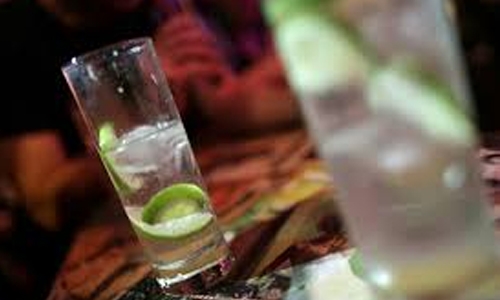'Moderate' drinking linked to brain damage
Paris : Even moderate drinking is linked to brain damage and a slight decline in mental skills, according to a study released Wednesday that calls into question many national alcohol guidelines.
Men and women who consume 14-to-21 drinks a week over decades are two to three times more likely than non-drinkers to show atrophy in the hippocampus, a part of the brain that governs memory and the ability to keep one's bearings, said the study, published in the medical journal BMJ.
They also performed more poorly on a specific verbal test, though other language functions appeared to remain unchanged.
A single drink was defined as containing 10 millilitres (eight grammes) of pure alcohol -- the equivalent of a large glass of wine, a pint of five-percent beer, or a shot of spirits such as whisky or vodka.
Last year, the British government revised its guidelines for alcohol consumption, lowering the recommended maximum for men and women to 14 "units," or drinks, spread out over a week.
In other countries, that threshold is set higher for men: 35 units in Spain, 24.5 in the United States, 21 in Denmark and Ireland, and 19 in New Zealand.
For women, however, guidelines for maximum weekly consumption in all of these nations, except for Spain, is 14 drinks or less.
The negative impact of heavy drinking on the brain is well documented, but research on potential damage from "moderate" consumption -- up to now defined as two or three drinks a day, on average -- has been scant and inconclusive.
To probe further, researchers at the University of Oxford and University College London combed through data on 550 men and women monitored during 30 years as part of the so-called Whitehall II study.
Volunteers reported periodically on their drinking habits, and scientists carried out brain tests at regular intervals. None were alcoholics at the outset.
The effect of 14-to-21 units of alcohol on the hippocampus was clearly shown by imaging technology.
Related Posts

